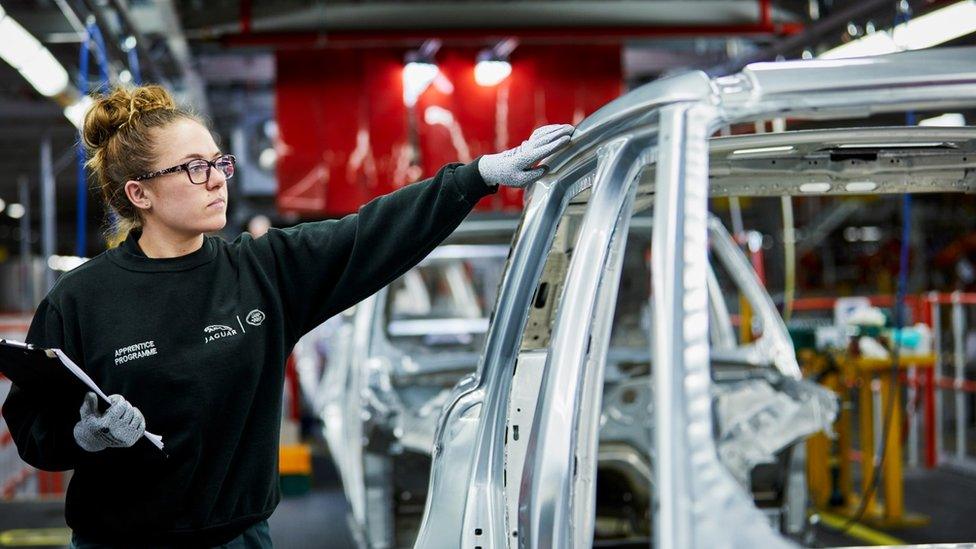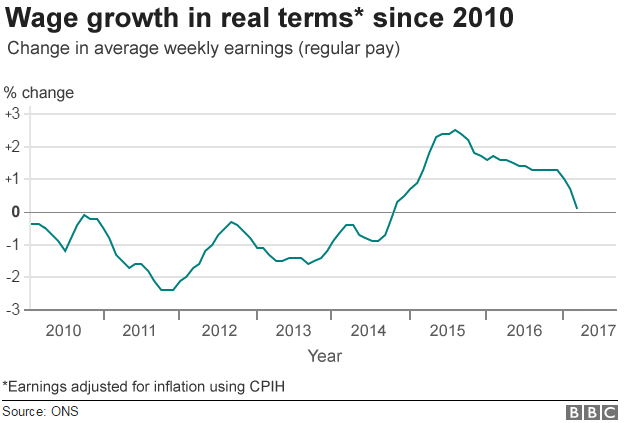UK wage growth slows as higher inflation starts to bite
- Published
- comments

The UK unemployment rate has remained at 4.7% as inflation starts to wipe out wage growth, official figures show.
The number of people unemployed fell by 45,000 to 1.56 million in the three months to February, said the Office for National Statistics (ONS).
Average weekly earnings including bonuses increased by 2.3%, the same as in the year to January.
On Tuesday, figures showed inflation was running at 2.3%, above the Bank of England's 2% target.
The ONS said average weekly earnings for employees rose by 2.3% including bonuses, and by 2.2% excluding bonuses, compared with a year earlier.
But adjusted for inflation, average weekly earnings increased by 0.2% including bonuses, and by just 0.1% excluding bonuses over the year. That was the slowest rate of growth since 2014.

ONS senior statistician David Freeman said: "A joint record employment rate and a new record high for the number of vacancies point to continued strength in the labour market. However, higher inflation, coupled with subdued earnings increases, means that the real growth rate in pay has tailed off to just above zero."

Analysis: Kamal Ahmed, economics editor
Wage increases are set to continue slowing. It is likely that next month, falling real incomes will be back with us for the first time since September 2014.
Britain's income squeeze is one of the most difficult political and economic issues facing the government.
Many will argue that an economy that works for everyone would not be expected to be one where people are worse off at the end of the year than they were at the beginning.

The number of people in work continued to increase - up by 39,000 on the latest quarter to 31.8 million, giving an employment rate of 74.6%, the joint highest since records began in 1971.
'Perfect storm'
Work and Pensions Secretary Damian Green said: "More people are finding full-time jobs and average wages have grown yet again, meaning more families have the security of a regular wage."
However, Samuel Tombs, chief UK economist at Pantheon Macroeconomics, said: "Households are being caught in a perfect storm of rising inflation and slowing labour income growth."
As inflation was expected to keep rising this year, the squeeze on consumers would intensify, said Andrew Sentance, senior economic adviser at PwC.
"Both the employment and wage figures therefore point to a slowdown in consumer spending, which is already apparent from the retail sales data for the early months of this year."
The unemployment rate is at its highest in the North East region at 6.4% and at its lowest in the South East at 3.4%.
Sterling rose slightly against the dollar to $1.2521 after the figures were released and hit a 12-day high versus the euro.
- Published12 April 2017
- Published11 April 2017

- Published5 April 2017
